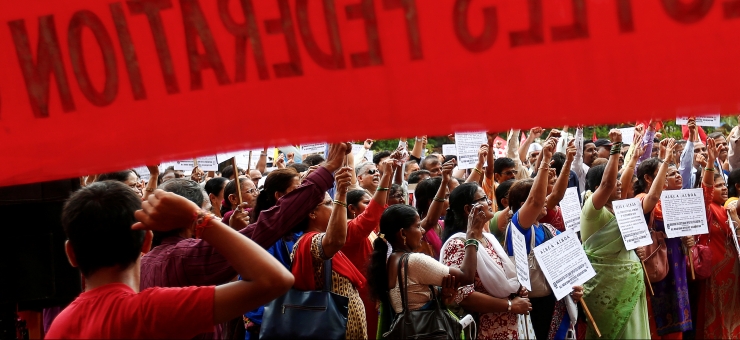MENU
Affiliates only
Login
Login

Trade unions in India will join in a national general strike on 2 September to protest the government’s anti-worker policies. This will be one of the largest coordinated labour strikes in Indian history, with over 150 million workers expected to march.
Today, across all sectors of the Indian economy, millions of workers will march in a unified protest against the government. The nationwide general strike will cover transport, energy, coal, textiles, automotive, port, steel, oil, defence production, scheme sectors, education and central and state government employees.
After a series of undemocratic anti-worker policies which have harmed working people, trade union leaders expressed disappointment at the government’s failure to engage in meaningful dialogue. Although there was a national strike on the same day last year, the government still refuses to take workers’ demands seriously.
In the lead up to 2 September, the government desperately tried to prevent the strike by increasing minimum wages for unskilled central government workers from $3.70 to $5.20 per day, or $135 a month. However, only the BMS backed out of the strike, whilst the others dismissed this inadequate increase. The other 10 unions will go ahead with the strike and demand that the national minimum wage is raised to $268 a month.
The anti-worker polices include the introduction of fixed term employment, an increase in the limit of overtime work (from 50 hours per quarter to 125), and the diversion of worker’s social security. Unions argue that these policies are designed to exclude workers from basic protection by Indian labour laws. They also denounced the governments moves to privatise many sectors, thus encouraging direct foreign investment in sensitive sectors such as defence, railways, banks, insurance, retail and pharmaceuticals.